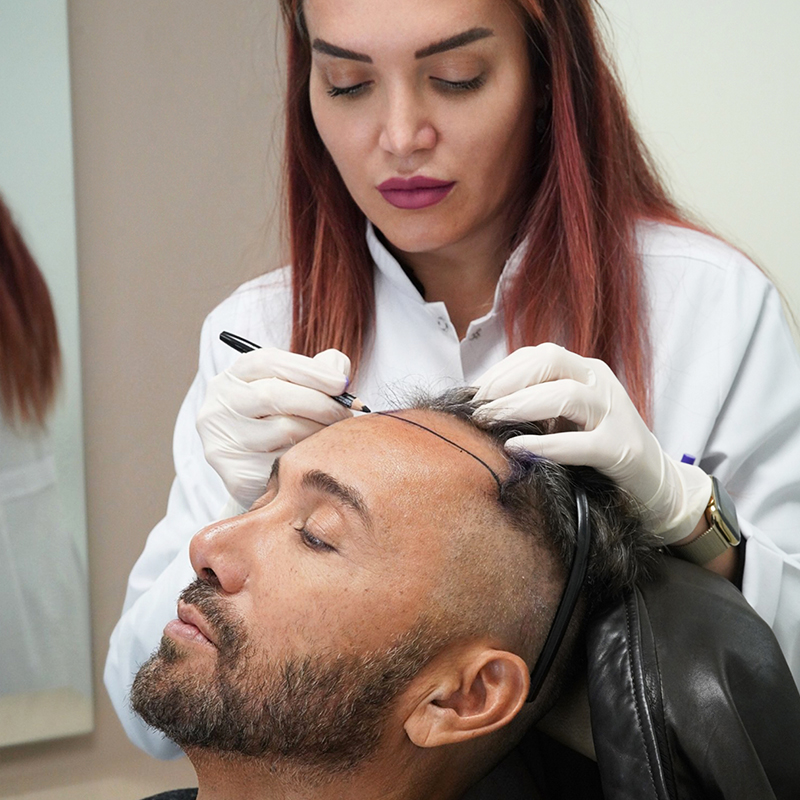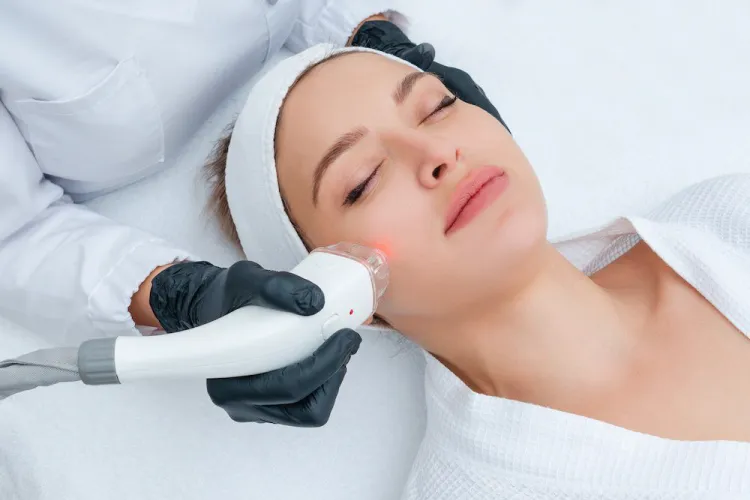Regular dental checkups make for a picture of dental health (in this case, literally). Image: Primary Dental
Teeth-brushing is a habit ingrained in all of us since childhood. From a young age, we’ve all created our personal ritual of brushing twice a day—and this habit has hopefully carried over into adulthood.
As well as brushing, flossing is also really important. Many of us neglect this component of our dental hygiene routine, but we underestimate how critical it can be. Brushing alone is like giving the car a once-over with a hose. Flossing is when you spot clean problem areas with serious elbow grease (but please don’t apply elbow grease to your flossing routine. Teeth are a lot more delicate than cars. Handle them with care).
If you wash this all down (or out, as the case may be) with antiseptic mouthwash, then bonus points to you. Add annual dental checkups (once annually will do, unless you have an issue requiring more frequent attention) to the list and you should be a picture of dental health. Do you know what the best part is? Good dental health pays off—and even in ways you may not have expected.
Intrigued? Read on to learn what benefits—both expected and unexpected—you could reap from a thorough routine of daily dental hygiene.
Table of Contents
Better Quality Of Life Overall
What is the mark of poor dental hygiene? Decaying teeth—which can add a repellant quality to your smile—and the slightly more invisible issue of gum disease. This may be a shallow question, but would you swipe right on someone whose teeth were soiled and broken? You don’t necessarily need to have teeth bleached within an inch of their lives, but you will get a better reception all-round if your teeth are at least intact. Low levels of staining are also acceptable—because takeaway coffee is readily available and we’re all only human. Staining to the point of distraction, though? It may just be a no from me, dawg.
Another unfortunate side effect of poor dental hygiene is poor breath. Do we really want to smell the bacteria-ridden remnants of your last few meals? Nada. Bad breath is the ‘silent but deadly’ enemy of attraction. You can’t see it—but, boy, can you tell when it’s there.
Don’t do this for the people around you, though. Do it for yourself. A healthy mouth will make for a happier you all-round. The stronger and whiter your teeth, the better you will look and feel. Your teeth will have no issue getting around almost any kind of food. You also won’t experience toothaches or pains that distract from sleep or focussed work. A better quality of life and a better profile pic for Tinder (or LinkedIn, if you’re fishing for a job rather than a mate)? Sign me up.

Believe it or not, but this is actually a pre-pandemic photo. Would you swipe right on this bright-smiled dentist?
Lower Chance of Bodily Infection
Poor dental health is a slippery slope to further bodily infection. That’s right: research has uncovered a link between gum disease and rheumatoid arthritis. Rheumatoid arthritis, in a nutshell, is an autoimmune disease causing joint inflammation.
You may be wondering how something isolated to the mouth could cause any such run-on effect. The missing link? In each respective condition, the connective tissues are destroyed in a similar way.
The body is smart and finds associations everywhere. As they say, everything’s connected! Sometimes bodily health starts towards the top: in that warm bed of bacteria known as your mouth.
Lower Chance of Heart Disease
Gum disease breeds inflammation—and this has been linked to cardiovascular issues including strokes, heart disease, and blood vessel blockage. Though there is not necessarily a causal relationship between gum disease and the cardiovascular system, there is a definite correlation.
This further solidifies that saying from before—‘everything’s connected!’—and suggests that good dental health could provide a solid foundation for health in general. Better to take all available precautions, right?

Pro tip: if you’re experiencing cardiovascular issues, maybe leave those chocolate hearts for us.
Improved Memory
Who’d have thought dental health could affect mental faculties, too? Believe it or not, but a report in the Journal of Neurology, Neurosurgery & Psychiatry found that adults with gingivitis performed more poorly on memory tests, as well as on tests for other cognitive skills. There was a particular correlation between gingivitis and poor performance in the areas of verbal recall and mathematical subtraction.
Adults without dental health issues, on the other hand, tended to outperform the gingivitis sufferers. Again, this is a correlation rather than a causal relationship, but the results are staggering. By brushing up on your dental routine—literally—you may just be brushing up on your memory skills, too (albeit figuratively).
Get Brushing!
With physical, mental, and emotional benefits all-around, why not brush up on your dental routine?
If you’re only brushing once a day, turn things up a notch. Factor in time in your morning for a two-minute teeth-clean. If you’re not flossing, you should really get on that. Research some of the correct flossing (and brushing, for that matter) techniques.

Have a bottle of mouthwash handy by the sink. Review how often you visit the dentist. If it’s been a little too long, pick up that phone and book an appointment.
A bill of clean dental health is your one-way ticket to a better quality of life overall. Brush and polish those foundations and let’s see that pearly-white smile!















